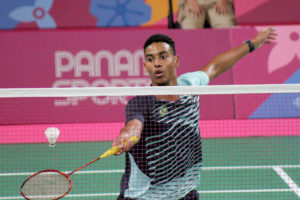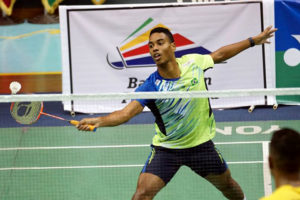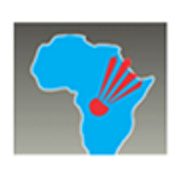Text by BWF
It’s the small things that interest Ygor Coelho.
The favela he grew up in might not be too distant from the Riocentro pavilion that hosted the last Olympics, but the journey itself was long. In seeking to push ahead on that path to Tokyo 2020, Coelho reckons it’s the small things that will matter.
Since starring as home hero at Rio 2016, Coelho has been outside the spotlight for the most part, but he’s happy with his incremental progress.
“I changed a lot of things. When I played my first Superseries in 2016, I thought everything was hard work,” says the Brazilian, who’s currently at home recuperating from a hip surgery.

Coelho had modest success last year; he was in a few semifinals and quarterfinals; his best being a gold medal at the Pan Am Games. His hip had been troubling him for some time, and a diagnosis earlier this year confirmed he needed surgery. With the Olympics postponed, Coelho had the surgery in July, which will give him sufficient time to recover for the Olympics next year.
“The pain started in 2018 and in January 2019 I had a lot of injuries,” recalls Coelho. “I was training for the league matches in Denmark and I was feeling pain. A bone in my hip was too big. I came back to Brazil in July for the surgery.
“I walk and do mobility exercises. I started strength training in my leg. After everything becomes strong I will come back.”
“My goal was to help my team next year to come back to the final four (in the Danish league) and win a title. For me it’s very important. Also, the Olympics. I’ve been using a lot of energy and this was a problem because I could not train hard for a long period. Then I had a choice between doing the surgery now and playing the Olympics at 100 per cent, or not doing weights until the Olympics ended. But for me everything is about Tokyo – all my performances over the years and I’ve arrived at this big stage and I want to do well, so I have higher goals so for me it’s very important to come back at 100 per cent.”

“I had a lot of good experiences,” says Coelho. “I trained with Peter Gade and Jesper (Hovgaard) in France. That experience helped me a lot. I came to No.30 in the world. And physically my shape was good.
“I have a new way to see badminton. Then my Olympic Committee helped me to have Danish coach, and she gave me a lot of good advice and changed my badminton for the better. I reached the round of 16 at the World Championships in Nanjing. That’s a big memory for me.
“I won the South American Games, I was the first Brazilian to win that. Also, the Pan Am Games. In the Olympic season I had been doing great, I played a lot of good matches. My world ranking is good, and I’m proud to perform and play against the best. I had to work a lot to arrive at the top level. But I can see I’m closer to the top than a few years back.”
Which comes to the question – what exactly differentiates players like him from the very best?
“I think it’s the small things, like technique. They’ve very good physically. They’re complete. They train hard for longer time. They’re not tired at all. The quality is still there even if they’re tired. That’s the main thing. They can keep going with the same deception and quality lifts, attacking shots, even if they’re tired. The players below fail in these things.
“All these years I’ve been working on quality. With Nadya, since 2018 I’ve been learning a lot about quality, like good lifts, close to the tape, these things I’ve never worked on before. And I’ve improved a lot since looking at badminton this way.”







